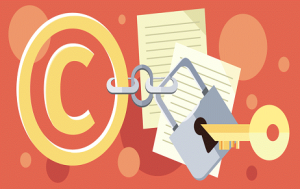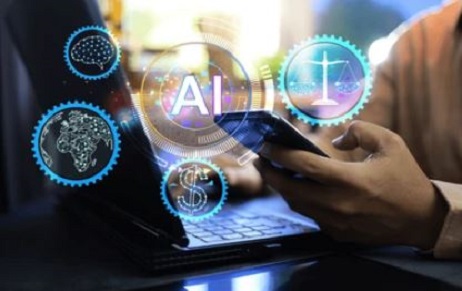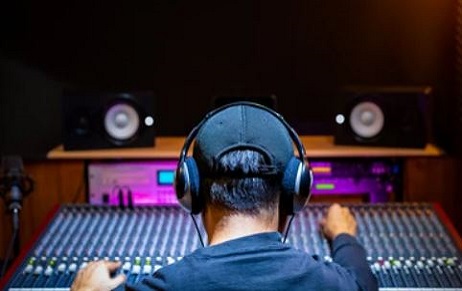A new era started with the innovation of Artificial Intelligence (AI). AI systems can produce…
Moral Rights Under Copyright-An Empowering Provision To The Personal Rights
Natural Rights of a person are the rights available to each human by virtue of being a human. Irrespective of any statute, such rights are available to every person in order to facilitate a decent, humane standard of living. The broad ambit of Natural rights encompasses the concept of Personal Rights. Personal Rights includes the Right over one’s body, personal security, liberty, private property and also grants protection to the aspects of personality. Personality Rights includes the Right to Publicity and the Right to Restrict others from commercially exploiting the person’s image or works.

The Copyright Act extends protection to the Economic and Moral Rights of the author too. For the purpose of this analysis, the author has restricted the research only to moral rights. “Moral Rights” refer to the idea that the literary or artistic work is a result of the personality of the creator. The author has the right to preserve, protect and nurture his creations through their moral rights. These rights confer upon the author the right to claim authorship of his work and to prevent distortion, mutilation, or any other alteration of their work, that harms the reputation.
PERSONAL RIGHTS: Meaning and Connection to Copyrights
Personal Rights include the right to safeguard one’s body against assault or battery and also the right to protect one’s personality, primarily guarding a person against any sort of defamation or harm to honour. Thus, Personality rights erupts from the concept of where the attitude, behavior, and habit of a person is stamped on the work produced. In reference to Copyrights, various theories have successfully established the relation between one’s personality and the type of work produced. The Labour Theory formulated by John Locke advocates that a person who labors upon the available resources and uses his intellect to yield a new work must have the natural right over the fruits of their efforts. Personality theory, too, advocates the similar idea that there exists an intimate and emotional connection between the creator and his work. The work is bound to carry the shadow of the creator where his habit, thoughts, ideas are in a way infused, hence, the expression of an individual’s thoughts majorly influence the quality of work that comes into existence. The Economic Incentive Theory talks not only about the profit faced but the idea of exclusion or allowing the work to be reproduced, derived, or for public performance such economic rights were to be given. The time, money, and labor invested must be recouped.
It has also been judicially accepted that there exists no definition of personality rights in India and the courts have started recognizing the same through judgments.
Personality Rights include the right to publicity, that is, the right to control how their image or work is commercialized by a third party. The Delhi High Court in Titan Industries v. Ram Kumar Jewelers held that, “At a certain point when the character of a popular identity is utilized in promoting without their authorization, the protest is not that nobody ought not market their personality but rather that the privilege to control when, where and how their personality is utilized should vest with the acclaimed identity. The privilege to control business utilization of human personality is the privilege to exposure”. The right of publicity originated from the right of privacy, and it can only exist in an individual or any indicators of that person’s identity, such as his name, personality attribute, signature, voice, and so on.” An individual may obtain a right of notoriety as a result of his participation in an event, sport, or film.
Domain Names of famous persons have also been recognized by the courts as an extended aspect of one’s personality. In the case of, Arun Jaitley v. Network Solutions Private Limited and Ors, the Delhi High Court observed that “the name of Mr. Arun Jaitley, falls in the category wherein it besides being a personal name has attained distinctive indicia of its own. Therefore, the said name due its peculiar nature/ distinctive character coupled with the gained popularity in several fields whether being in politics, or in advocacy, or in part of the emergency protest, or as a leader or as debitor has become well known personal name/ mark under the trade personal name/ mark under the trademark law which enures him the benefit to refrain others from using this name unjustifiably in addition to his personal right to sue them for the misuse of his name.”
COPYRIGHTS and Moral Rights: Essence in Strengthening Personal Rights
A thriving social issue is the need to protect one’s intellect faculties and foster productive creative work since creativity is the foundational stone of any developing nation. Hence, the laws of Copyright came into existence. Section 57 of the Copyrights Act, based on Article 6 bis of the Berne Convention, talks about the Moral Rights of an Author. The section confers upon the author special rights that have the sole objective of protecting honour and reputation that the intellectual work has earned for the author. The root of this special right lies in the concept of morality, thereby, providing widest possible protection to the intellectual work of author. Moral Rights are a collection of Personal Rights, available to the creators in respect of their work-literary, dramatic, musical, film, artistic works and others.
Moral Rights are mainly classified into following types:
- Droit De Paternite – Right of Paternity
- Droit de respect de l’oeuvre- Right of Integrity
- Right against False Attribution
- Right of Privacy
Right of Paternity refers to the author’s rights to claim the authorship of his work and prevent others from using his names in their works. Authors, sculptors, artists, cinematographers, and others are given credit for their work. This is an author’s right to assert his authorship. This right dictates how, where, and when someone gets acknowledged as an author. It works in three stages to preserve an author’s rights:
Work Publicity: The author has the right to have his name publicly identified as the author of that particular work. If the author desires, his name will be prominently shown everywhere his work is utilized, whether in an advertisement or as an example.
Plagiarism of work: The author has the right to protect his or her work from plagiarism. No one may sign their name to another’s work. Plagiarism occurs when a person copies the entire work or a portion of it without giving due credit to the creator.
False attribution: The author can prevent others from incorrectly identifying him as the author of a work in which he was not involved. This is especially important when there is a contentious work and the individual is credited as an author despite not having contributed to it. In addition to the aforementioned rights, the authors’ paternity rights grant them the unique right to remain unknown.
Right of Integrity refers to the Right of an author to prevent distortion, mutilation or other alteration of their works that harm the honour or reputation of the author. This right plays an important role when the licence or agreement of the work has been assigned to some other entity, to adapt or alter the work in some manner. Section 57 of the Act also confers upon the authors the right to claim ownership of the work and the right to restrain any kind of mutilation, distortion or other modifications or to claim damages in such cases of any mutilation, modification or distortion of the work. In the case of K.P.M Sundaram v. Rattan Prakashan Mandir, the Hon’ble Delhi High Court held that, “the term, “or other modifications” is to be considered ejusdem generes the words like mutilation and destruction. The court also opined that such modification should be not such that the original and the modified works are completely different. It is important to note that the provision requires that acts such as mutilation, modification or destruction must take place during the time period in which the copyright protection is available to the author or the creator. An author’s moral rights can be waived if the waiver is performed voluntarily. As a result, if the waiver of moral rights is voluntary, it is permissible.
But it also must be kept in mind that the scope of this section is of widest amplitude. It is also available to the authors are independent of their copyright and other remedies available against infringement. It overrides the terms of contract of assignment of copyright. It is pertinent to note that any other person who acquires the ownership of someone’s work by paying for the same, shall also be restrained from damaging, mutilating, distorting the work since that is detrimental to the author’s reputation.
Right against False Attribution refers to the right to not be recognized as the creator of someone else’s work. Right to Privacy deals with the right of a person to not have copies of their work exhibited, broadcasted or issued to the public.
Thus, the moral rights emanate from personal rights, thereby protecting a person, his intellectual creations and personality from any sort of defamation.
CONCLUSION AND SUGGESTIONS
Copyrights have played a major role in encouraging the creators and to keep the concept of creativity alive by rewarding them economically as well as providing widest possible protection against all sorts of damage to the work and creator. Thus, the concept of moral rights is included within copyrights are a result of the personal rights available to any person. Personal rights, as already mentioned are available to every being, irrespective of whether they produce some work or not. Whereas, moral rights, under the ambit of copyrights, strengthens these personal rights, particularly, the personality and reputation of a person by providing statutory support to them and their works.
The author would further put forth certain suggestions, with respect to the connection of moral and personal rights. Though it is crystal clear that moral rights have a statutory backing under the Copyrights Act, 1957, but there still exists a grey area when it comes to personal rights. Apart from Article 21 of the Constitution of India, no other laws provide protection to the concept of personality. Such moral rights strengthen the social nature of law, thereby making it the need of hour to have a legislation dealing with aspects of personality protection.
Author: Sephali Svati- a student of Symbiosis Law School, Pune, in case of any queries please contact/write back to us via email [email protected] or contact us at IIPRD.



